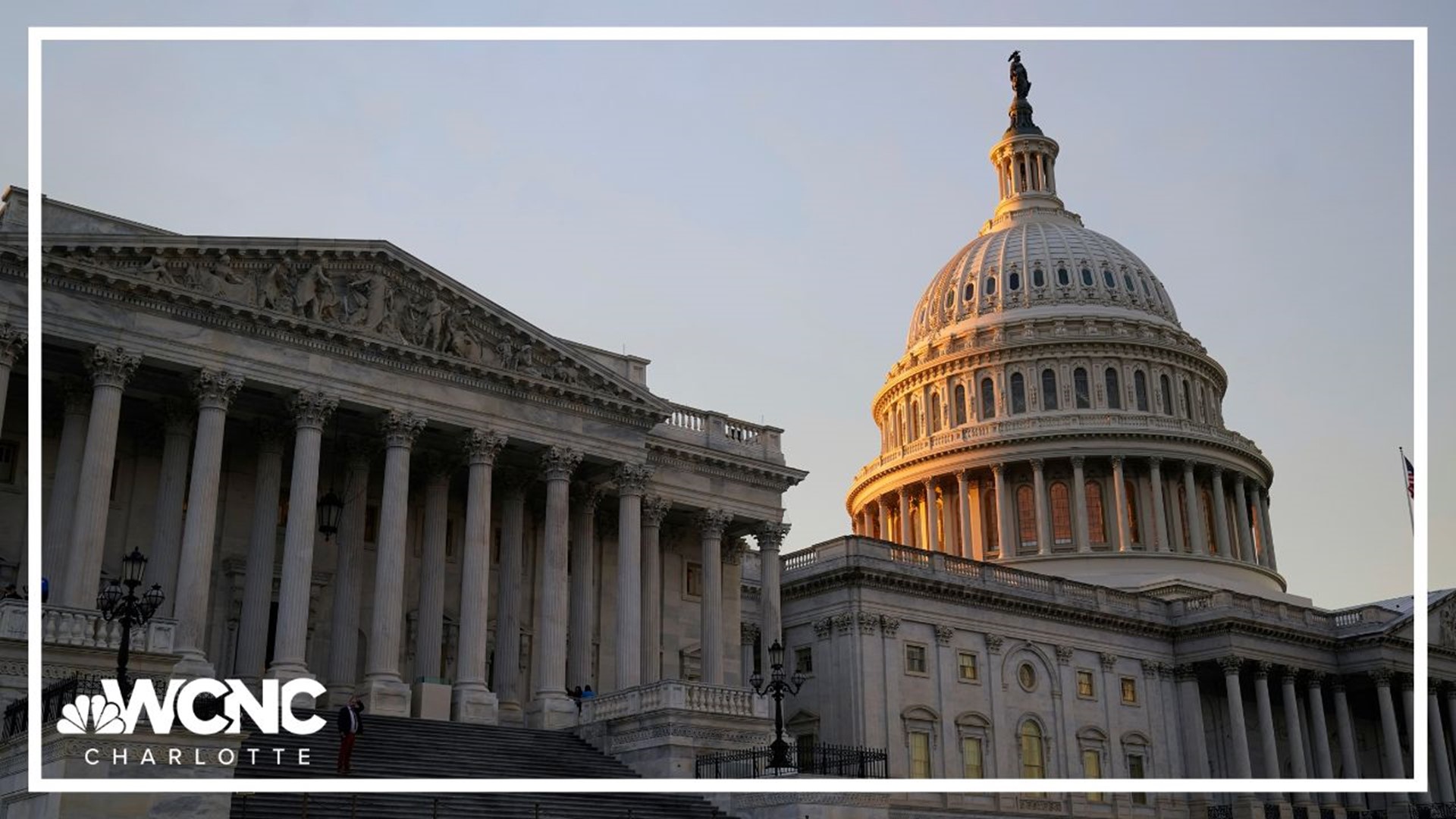CHARLOTTE, N.C. — The clock is ticking for government officials to agree on federal funding for the start of the federal budget year. If Democrats and Republicans are unable to strike a deal, a shutdown of the federal government can impact everyday living for the public.
Every year, Congress must pass, followed by the president signing budget legislation for the next fiscal year, consisting of 12 appropriations bills, one for each appropriations subcommittee.
A new deal must be approved before Sept. 30 at midnight to avoid a shutdown. If not, federal agencies will have to stop all non-essential work and won’t send paychecks as long as the shutdown lasts. South Carolina Rep. Ralph Norman, who is a Republican, is hoping to buy more time in order to strike a deal.
“I don’t mind funding the government 30 more days and had we not of gotten these agreements, I was willing to go into shutdown," Norman said.
A shutdown could slow down air travel with TSA agents not reporting to work. A shutdown would also impact people who rely on food stamps for groceries, as well as emergency funding. The FDA and EPA would also stop reporting to work, and the National Institutes of Health (NIH) would be prevented from admitting new patients or processing grant applications.
While some government entities will be exempt — Social Security checks, for example, will still go out — other functions will be severely curtailed. Federal agencies will stop all actions deemed non-essential, and millions of federal employees, including members of the military, won't receive paychecks.
South Carolina Rep. James Clyburn, who is a Democrat, shared insight on how Democrats see the disconnect in Washington. He blamed House Speaker Kevin McCarthy.
"The Speaker made a deal to what the budget would look like," Clyburn said. "Democrats agreed to it; House Democrats [and] Democrats in the Senate. Even Republicans in the Senate agreed to it. They have mocked up to those top lines and then all of a sudden, McCarthy seems to be backing away from the deal."
Congress often relies on a so-called continuing resolution, or CR, to provide stopgap money to open government offices at current levels as budget talks are underway. Money for pressing national priorities, such as emergency assistance for victims of natural disasters, is often attached to a short-term bill.
But hardline Republicans say any temporary bill is a non-starter for them. They are pushing to keep the government shut down until Congress negotiates all 12 bills that fund the government, which is historically a laborious undertaking that isn't resolved until December, at the earliest.
Trump, who is Biden's top rival heading into the 2024 election, is urging on the Republican hardliners.
If they are successful, the shutdown could last weeks, perhaps even longer. If that happens, they fear the impact could last months.
The Associated Press contributed to this report.
Contact Myles Harris at mharris5@wcnc.com and follow him on Facebook, X and Instagram.
Flashpoint is a weekly in-depth look at politics in Charlotte, North Carolina, South Carolina, and beyond with host Ben Thompson. Listen to the podcast weekly.
SUBSCRIBE: Apple Podcasts || Spotify || Pandora || Google Podcasts || iHeart
All of WCNC Charlotte's podcasts are free and available for both streaming and download. You can listen now on Android, iPhone, Amazon, and other internet-connected devices. Join us from North Carolina, South Carolina, or on the go anywhere.

